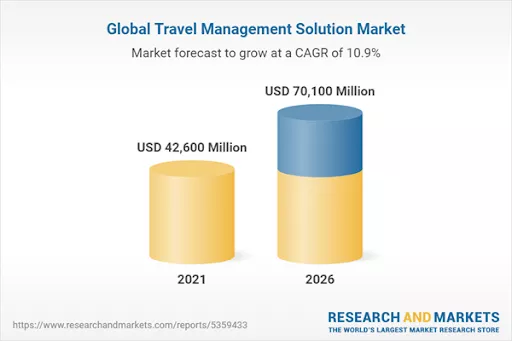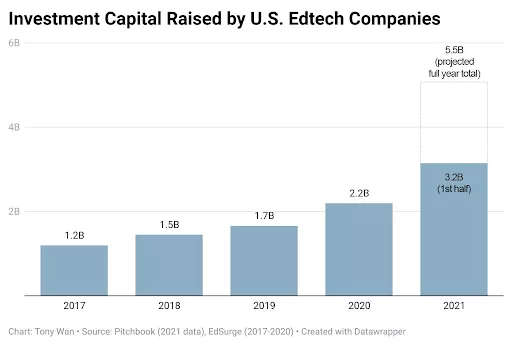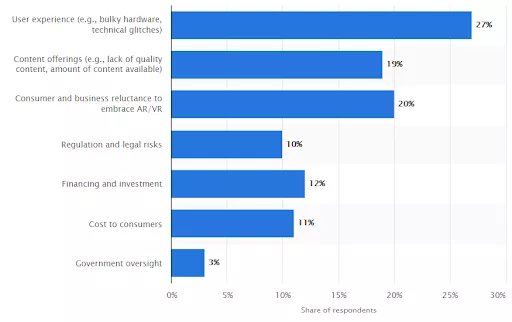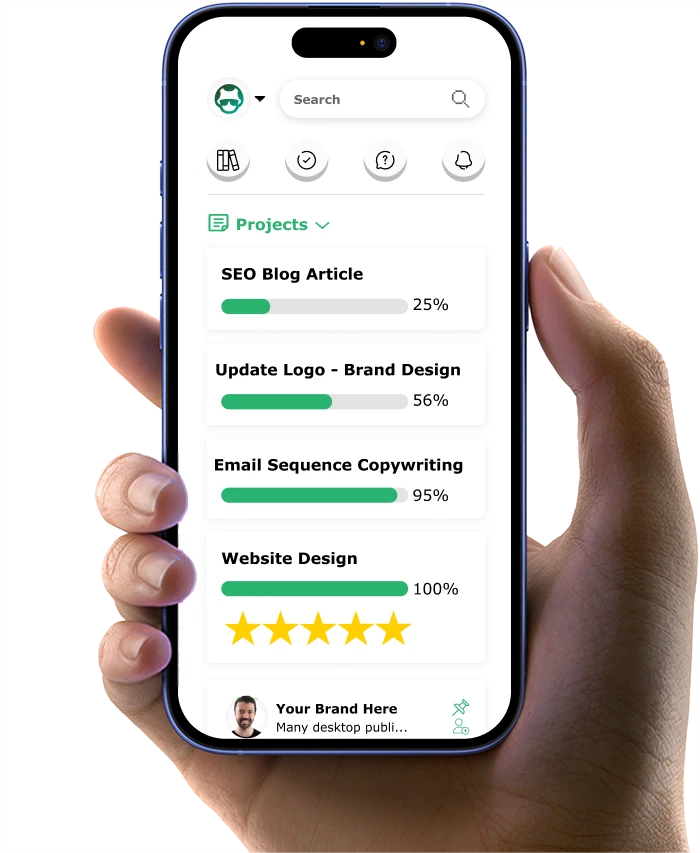13 Top Startup Industries for Entrepreneurs

Do you ever wish that you were the person who had the great idea for Uber, Airbnb or Snapchat?
Or do you think you’d be better off in another industry?
To do so, you need to identify the top industries for startups.
As an entrepreneur, you must always look for new opportunities. Like an opportunistic predator in the wild.
Because consumer demands are always shifting.
And technology changes expectations.
So the entrepreneurs that adapt become tomorrow’s business leaders.
Well, here is your chance to get in on something big.
I understand starting a new business is scary.
But if you’re willing to take the plunge, you’ll want to read on.
For this resource, I’ll talk about:
- 13 of the top industries (in no particular order) that are promising for new startups for years to come — so you have some ideas for your next business venture.
- Industry trends on a global scale — including growth rates and market sizes.
- Examples of some real-world applications of these industries in B2C and B2B commerce.
Get a head start on your new startup’s marketing operations by signing up with Growbo.
Are you ready to find that perfect alignment between your passion and an industry that’s destined for success? Let’s start off with the first on the list.
In a rush? Want to download this article as a PDF so you can easily take action on it later? Click here to download this article as a PDF guide.
1. Top Industries for Startups: Travel Management
The first top startup industry on the list is travel management.
A travel management startup will provide platforms for users to share, discover and book accommodations for short- or long-term stays.
Companies in travel services improve access and convenience in the way people book outings and trips — basically, just making their lives easier.
And one example of a success story in the industry is Airbnb, which provides an online platform where people can list their homes and properties as well as rent them out to others.
A lesser-known travel management company is TripActions.
TripActions uses a software-based approach to solve travel booking and payment problems for businesses around the world.
Recently, the startup announced that it’s valued at $7.25 billion, making it unicorn status seven times over.
According to Research and Markets, the travel management solution market will reach $70.1 billion in 2026. And it’s growing at a 10.86% annual rate.

2. Top Industries for Startups: Educational Technology (EdTech)
EdTech companies serve the noble purpose of improving student learning.
In a nutshell, it’s the combination of education and IT.
For example, look at the startup, Screencastify.
This EdTech startup has helped hundreds of thousands of teachers across the world by providing an easy-to-use Chrome extension that records what happens on a user’s screen as they navigate through a website. And it provides the ability to narrate; a built-in, virtual pencil; and a focus mouse.
Other than working in a mission-aligned industry, you’ll also be in a growing industry.
According to Grand View Research, the EdTech industry will grow by 19.9% year-to-year globally between 2021 and 2028.
And Asia-Pacific region will grow the fastest at 22.6% annually.

With that kind of growth rate it’s no wonder why investments in U.S. EdTech in 2021 shattered records.
In the first half of 2021, $3.2 billion was invested in EdTech startups, as reported by Reach Capital. Now compare that to the $2.2 billion in all of 2020.
The COVID-19 pandemic certainly grew demand for EdTech.
But it also drew so much more attention to the value the industry can offer — hence the rapid demand projections.

3. Top Industries for Startups: Wearable Tech
Wearable tech startups are giving us innovative new ways to sense and interact with the world.
Whether it’s for health, location awareness or home security, these startups are designing products that take advantage of the latest technology to make our lives easier.
Wearable tech is a top industry for a startup because by 2026, the wearable technology market will be worth $265.4 billion, as per MarketsandMarkets.
Just for context, that’s up from its $116.2 billion worth in 2021.
4. Top Industries for Startups: Virtual Reality (VR)
Virtual reality (VR) startups design products that immerse users in a computer-generated world.
Most often, VR is associated with gaming.
But it’s used for far more than just recreation. It’s used in the military, medical facilities, in education, real estate, fashion, tourism, architecture, and much more.
Although VR is still a niche, it’s going to see some epic growth in the coming years.
In a report from Fortune Business Insights, the VR industry is forecasted to hit a 44.8% annual growth rate up until 2028.
And if you decide to enter the VR space, you should note that 27% of VR industry experts think that user experience (UX) issues are the biggest obstacle to mass adoption, according to Statista.

5. Top Industries for Startups: Drone Service
Drone service companies create unmanned aircrafts that conduct all kinds of tasks.
They’re able to fly for extended periods and carry out dangerous or time-consuming work.
Some examples include crop dusting, aerial photography, law enforcement surveillance, search and rescue operations, and even delivering your online purchases.
According to a Grand View Research report, the commercial drone market is expected to grow 55.2% each year between 2021 and 2028.

Worldwide, the drone services industry will grow 23.8% per year until 2030, as reported by MarketsandMarkets.
That puts the industry at a valuation of $40.7 billion in 2026.
Okay, let’s move on to the next top industry for startups.
6. Top Industries for Startups: Industrial Robotics
Industrial robots play a vital role in businesses all over the world.
Their capabilities and uses vary greatly, from packing and sorting boxes to assembling and welding parts.
To put it simply, industrial robots allow companies to run more efficiently with fewer employees.
As an example, BMW ordered 5,000 robots from KUKA to be used in production lines.

The industrial robotics industry outlook isn’t quite as great as some of the other industries we’ve looked at. But it’s still going to grow by 10.35% year-to-year through 2028, according to Research and Markets.
And industrial robotics can still claim a spot as a top startup industry because, being niche, there aren’t too many competitors in the industry.
7. Top Industries for Startups: Blockchain
Blockchain is a digital way to record transactions.
They’re secure, transparent and decentralized.
Blockchain can be used to record anything of value or importance.
And although blockchain is mostly associated with keeping virtual currency secure, it can keep any type of data safe —- including sensitive documents.
As of 2021, the blockchain industry was worth $6 billion, according to “The Global Blockchain Market 2021-2026” report from Research and Markets.
But it’s going to see a huge boom.
By 2026, the market size will be $56.7 billion, with a 56.9% annual growth rate.

According to Blockdata, 81 of the world’s top 100 companies use blockchain technology.
Below is an image that breaks it down.
Startup Management 101: How to Delegate Tasks the Right Way

And Bitcoin can benefit smaller firms too, not just enterprises.
For example, HSB found that 36% of U.S. small to medium-sized businesses accept cryptocurrency. And as adoption becomes more prevalent, there’ll be an even greater demand for Bitcoin
8. Top Industries for Startups: AgriTech
As the main focus, AgriTech startups help farmers produce more and higher quality crops through advanced technology.
And many of these firms put an emphasis on environmental awareness and sustainability, such as decreasing water usage, deforestation, pesticide use and other harmful environmental effects
Some of the tech used for these purposes include GPS, sensors and even robots.
As found by Research and Markets, AgriTech continues to be a top startup industry as it expects to reach a $41.17 billion value in 2027.
And according to Statista, the AgriTech-as-a-service market will be worth $3.09 billion by 2025. That’s over 300% growth from 2020.

9. Top Industries for Startups: Digital Health
Digital health startups use technology to improve patient care or provide some service to practitioners and insurance providers.
And they often develop apps or software that allow patients to keep track of their health status and to connect with the right medical staff.
To illustrate, let’s look at SkyMD.
SkyMD is a telemedicine platform where users can receive virtual care from a certified dermatologist.
And the app will factor in your health insurance for when it’s time to get a prescription.

Like the rest of the list, the worldwide digital health industry will see substantial growth.
According to Facts & Factors, the industry will grow 14.8% annually by 2026 and be worth $220.94 billion.
For the next item on the list for top startup industries, we’ll look at the importance of online security.
10. Top Industries for Startups: Cybersecurity
Startups in cybersecurity design new data security techniques and methods to protect business, governmental and individual information from being hacked or stolen.
As found by Cybersecurity Ventures, global cybercrime costs will grow roughly 15% each year until 2025 — for a total loss of $10.5 trillion in that year alone.

And according to Grand View Research, the cybersecurity industry’s growth rate will be 10.9% annually between 2021 and 2028.
11. Top Industries for Startups: Conversational AI
According to HubSpot, 93% of customers are more likely to make multiple purchases when a company offers excellent customer service.
Conversational AI uses machine-learning to create virtual assistants that users can interact with via messaging apps.
These chatbots can perform many useful tasks such as research, ordering products and answering customer questions.
With breakthroughs in natural language processing, chatbots have the potential to speak to users as if they’re a human.
Moreover, there’s even AI platforms like Jarvis that can write copy for marketing efforts.
Based on a few user inputs, Jarvis will start writing copy that is relevant to the topic by analyzing billions of internet data points.

The conversational AI industry is projected to reach $32.62 billion by 2030 — that’s an annual growth rate of 20% from 2021, according to Valuates Reports.

12. Top Industries for Startups: Ride-Sharing
Ride-sharing companies are known to provide on-demand access to cars for short periods of time.
Obviously, you already know about Uber and Lyft.
But there are other companies that can take a slice of the market too.
A few competitors include Curb, Chinese-based Didi, Ola Cabs, Grab, and some others.

Already, ride sharing is popular.
Had I published this article 10 years ago, ride-sharing still would have made the list for top industries for startups.
Between younger demographics caring about environmental sustainability and an increase in governmental regulation on emissions, the ride-sharing industry is going to continue to boom.
In a report from MarketsandMarkets, it’s stated that the global ride sharing market was $85.8 billion in 2021, and will be worth $185.1 billion by 2026. And with a 16.6% annual growth rate.

13. Top Industries for Startups: Voice Assistant Application
One of the biggest objectives that companies have is to improve customer engagement.
And one way to do that is with a voice assistant app.
According to Think with Google, 52% of consumers would like to receive information about deals, sales and promotions from brands through a voice-activated speaker.
Voice assistants are easy to use, hands free, interactive and deliver quick results.
Not surprisingly, 65% of 25-49 year olds use a voice-enabled device at least once a day, as per PwC.

You see, consumers are becoming more comfortable with using voice assistants to research and shop.
But it doesn’t stop there.
Voice assistant apps help businesses run more efficiently too.
From an IT help desk to sending emails for employees, voice assistants allow businesses to get more done during the day.
You see, a voice assistant app lets employees multitask and it carries out workplace duties that don’t require a human but still need a form of verbal communication.
For example, look at SAP’s Business ByDesign(BYD).
Powered by Alexa, this voice assistant app lets SAP clients easily pull information via voice request.
You can say something like “Alexa, ask BYD … what’s the net sales value of the last three months?” And will tell you the accurate answer.

According to Mordor Intelligence, the voice assistant application industry will grow at an annual rate of 27.3% between 2021 and 2026.

Delegating tasks is obviously one of the most fundamental aspects of management. With voice assistant apps, managers can spend less time coordinating with subordinates and spend more time on other things that don’t require their presence.
But for the times that you, as the leader, do need to assign tasks, watch our video “[Startup Management 101] How Do You Tell People What To Do?” This short video features Growbo’s CEO Matt, VP of operations Mariana, and chief of staff Belle.

Conclusion
Download the “13 Top Startup Industries for Entrepreneurs ” so you won’t forget to take action on it later. Click here to download it now.
Of course, no one can predict the future.
But if you’re looking for a place to start with your business aspirations, these 13 top industries for startups are promising and worth exploring further.
And you may find that they align nicely with your expertise or skill set, giving you an edge over other startups in the same space.
And if you want help getting started with marketing your new company or product when it’s ready, the Growbo team is here for you.
Growbo is always happy to provide marketing services for new businesses like yours when the need arises — from SEO and conversion optimization services to content creation and paid advertising campaigns.
And before you go,
Which industry excites you the most?
Let me know in the comments below.
Keep Growin’, stay focused.
Mark













